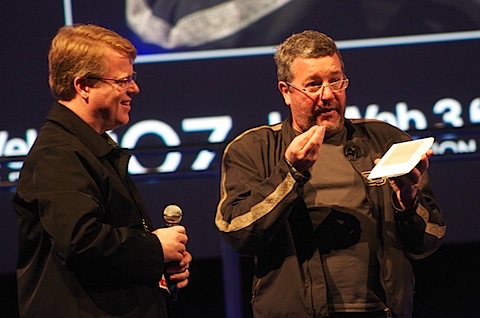On Englishness, Scottishness and Britishness

Somewhere between 20 and 30 years ago, a skinny teenager who had finally outgrown his puppy fat sat watching TV in his front room in a small Scottish town. He was probably with his younger brother, and was almost certainly reading – until he heard the BBC children’s presenters wish the children watching good luck with their exams.
“Thanks a bunch,” he thought. “Our exams finished weeks ago”. And then he threw his book at the TV. The BBC did not care about him, clearly.
And people wonder why the “Yes” vote in Scotland is so strong today.
That teenager was, of course, me. And that memory – amongst many others like it – is why I won’t be surprised if Scotland votes “yes” today.
Childhood friends split
I’ve been watching the campaign with great interest, but writing very little (just the odd comment here and there). I’ve been reading as old school friends debate it on Facebook. One is very strongly “no”, another very strongly “yes”. Both are artists, and both have very valid perspectives on the situation. The general balance amongst my friends still up there seems around 50/50.
This is what happens when one part of the country forgets that the other has a different education system, legal system and (in many ways) culture. If Scotland leaves, the London-centric culture of organisations like the BBC and the civil service will have to shoulder an awful lot of the blame.
I grew up in Scotland. I moved up there a little before my fourth birthday, and have only glimpses of memories of my time living in Manchester before that. I would go on to live there until I left for university, and would visit regularly until my parents retired to Suffolk in my early 20s. In fact, I have spent just under half my life considering Scotland home. But I’m not Scottish.
But then, am I English? I may have been born English, but I didn’t live there for any significant length of time until I was pretty much an adult. It’s just not a label I can identify with. I’ve always called myself British. It captures both my upbringing and my adult life down south.
For a long time, I intended to write nothing about the referendum. I’m not resident in Scotland, I can’t vote in the referendum and I can’t honestly call myself Scottish. But today, walking back from a nursery drop-off and a coffee, I found a joke by Martin playing on my mind.
@adders @tomfoolerycc I think I see a No Thanks logo in there? #omen— Martin Belam (@MartinBelam) September 18, 2014
Identity crisis
If Scotland votes “yes” today, I won’t know how to describe myself in a few years. I will, of course, still be technically both English and British. Britain is an island, not a nation. The United Kingdom will just no longer encompass the whole of Britain.
But an UK without the Scots feels somewhat empty to me. The country I will be a citizen of will no longer reflect part of what makes me who I am today. It will no longer contain a land and a people I love dearly. The UK has always felt like a family to me – a bickering family, true enough, and one with some serious problems , but a family none the less. And now someone is considering leaving the family. A family that loses a member is weaker for it.
If the Scots go, a small part of my identity will have been torn away.
Up until this morning, I didn’t have a strong opinion about the way I wanted the vote to go – but I do now. I want a “No”, but by a small, maybe tiny, margin. And, personally, I’d like to see fuller devolution. More powers to the Welsh, Northern Irish and Scottish parliaments, and an English parliament – outside London – to go with them. What we now think of as the Westminster parliament should be restricted to national issues only – ones that have an impact on all of the constituent parts of the UK.
There must be change
If the Scots vote to keep the UK together, then we should not return to business as normal. We should work to make it a genuinely United Kingdom, rather than a number of weaker kingdoms being pushed around by the big brother with delusions of grandeur. A “No” vote with no such change will only guarantee a “Yes” vote further down the line.
I don’t want that. I want to be able to take my daughter to the land I grew up in, and have her know that it is part of her homeland, too.
Sign up for e-mail updates
Join the newsletter to receive the latest posts in your inbox.










